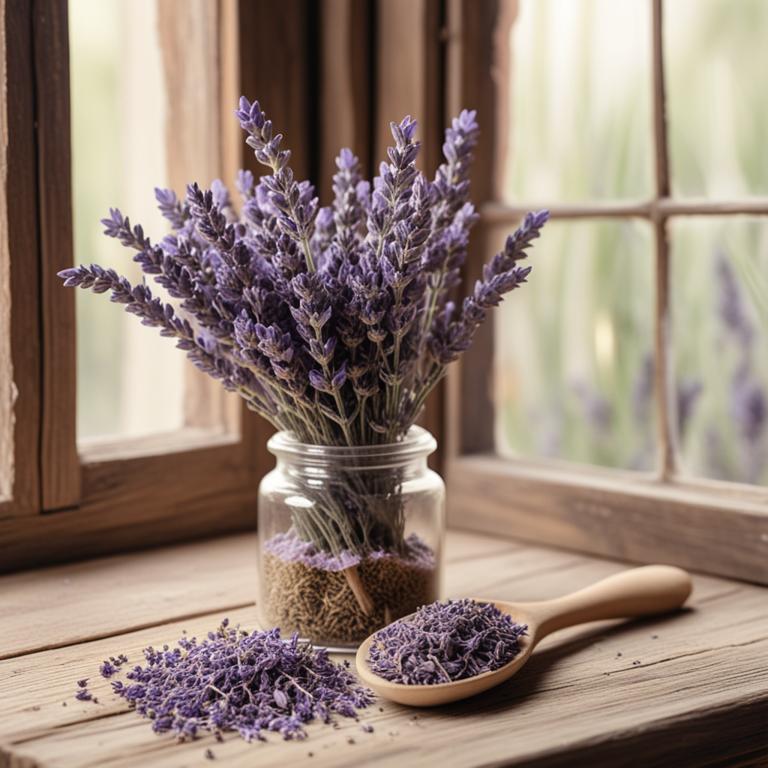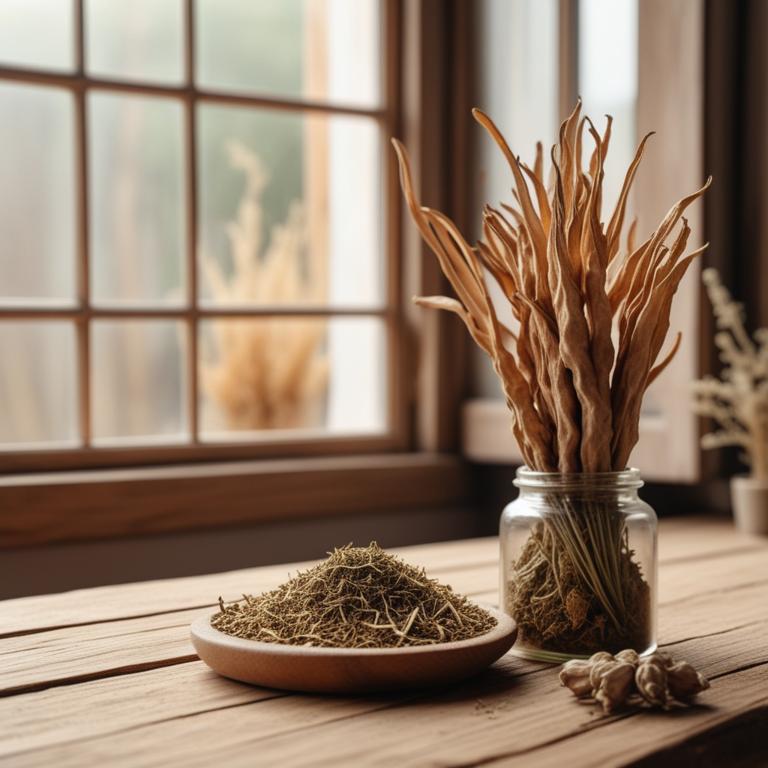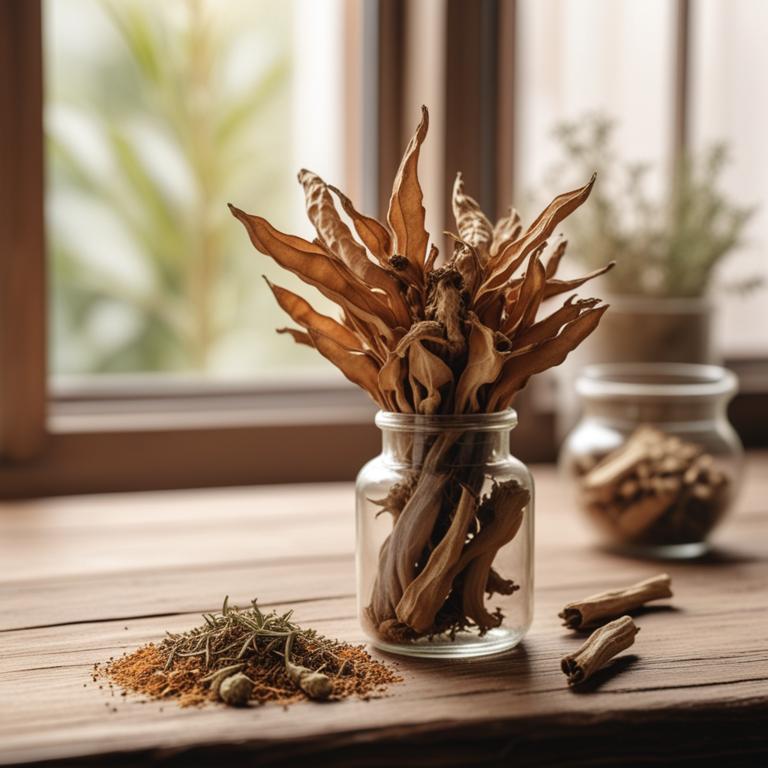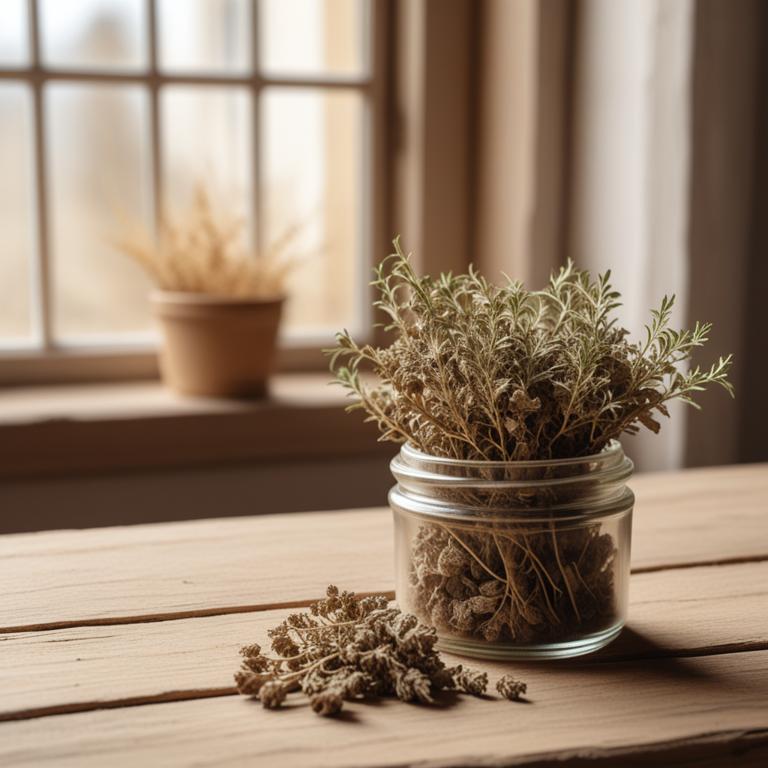Updated: Dec 1, 2024
Tendinitis Relief: Exploring Medicinal Herbs and Their Preparations
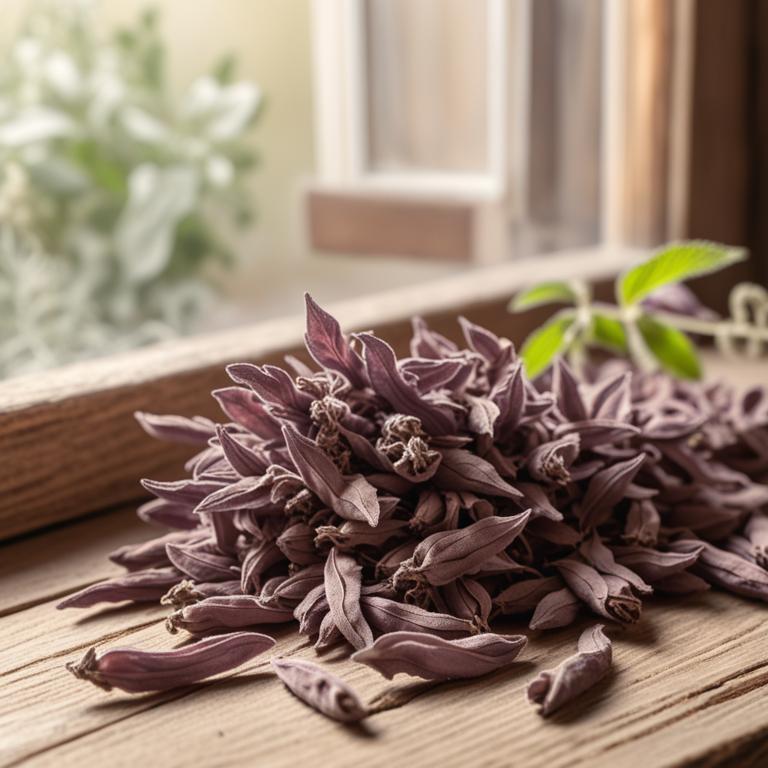
Tendinitis is a painful condition where the tendons, the tissues that connect muscles to bones, become inflamed.
This can make everyday activities like lifting, bending, or even simple tasks like tying shoes extremely uncomfortable. Tendinitis can be caused by repetitive strain, overuse, or even poor posture. When you have tendinitis, you may experience pain and stiffness in your affected area, especially after rest or physical activity. Herbal remedies can help alleviate the symptoms of tendinitis.
Herbs like turmeric, with its anti-inflammatory properties, and ginger, which helps reduce pain and inflammation, are often used to treat tendinitis. Other herbs like willow bark, containing salicin, a compound similar to aspirin, can also help ease pain and reduce inflammation. To use these herbs, you can try drinking teas made from them. You can also take supplements or use topical creams that contain these herbs. Some people also use herbal oils like arnica oil, which is known for its anti-inflammatory properties, to massage the affected area.
By incorporating these herbal remedies into your treatment plan, you may find relief from the pain and stiffness associated with tendinitis, making it easier to go about your daily life.
Table of Contents
- What are the primary causes of tendinitis?
- What are the benefits of using herbal remedies for the treatment of tendinitis?
- What are the main medicinal herbs utilized in the treatment of tendinitis?
- What are the most popular herbal remedies for tendinitis?
- What herbs could potentially exacerbate tendinitis?
- FAQ
What are the primary causes of tendinitis?
The main causes of tendinitis are repetitive strain and overuse of muscles and tendons.
Achilles tendinitis, for example, is often caused by running or jumping on hard surfaces without proper footwear, or by increasing exercise intensity too quickly. This repetitive stress puts strain on the Achilles tendon, leading to inflammation and pain. Bicipital tendinitis, on the other hand, is commonly caused by lifting heavy weights, especially with poor form or overusing the arm and shoulder muscles. This can lead to strain on the bicep tendon, causing it to become inflamed.
Rotator cuff tendinitis is often the result of repetitive shoulder movements, such as throwing a ball or lifting heavy objects overhead. This repetitive strain on the tendons and muscles of the rotator cuff can lead to inflammation and pain. Tennis elbow, or lateral epicondylitis, is caused by repetitive strain on the forearm muscles and tendons, especially in activities that involve gripping or twisting, such as playing tennis or using a screwdriver. Golfer's elbow, or medial epicondylitis, has similar causes to tennis elbow, but affects the inside of the elbow instead. It is often caused by repetitive strain on the forearm muscles and tendons, especially in activities that involve gripping or twisting, such as playing golf or using a hammer.
All these causes have one thing in common: repetitive strain and overuse of muscles and tendons.
What are the benefits of using herbal remedies for the treatment of tendinitis?
Using herbs for tendinitis can be a great way to manage pain and inflammation.
These natural remedies can help reduce swelling and discomfort in the affected area, making it easier to move around and perform daily activities. By promoting relaxation and reducing muscle tension, herbs can also help alleviate stress and anxiety that can exacerbate tendinitis symptoms.
Some herbs have anti-inflammatory properties, which can help block pain signals and reduce inflammation, leading to faster healing and recovery. Additionally, herbs can be used topically, allowing for direct application to the affected area, or taken internally to promote overall health and well-being.
This can be especially helpful for people who prefer a more natural approach to managing pain and inflammation, or who want to avoid the potential side effects of over-the-counter or prescription medications.
What are the main medicinal herbs utilized in the treatment of tendinitis?
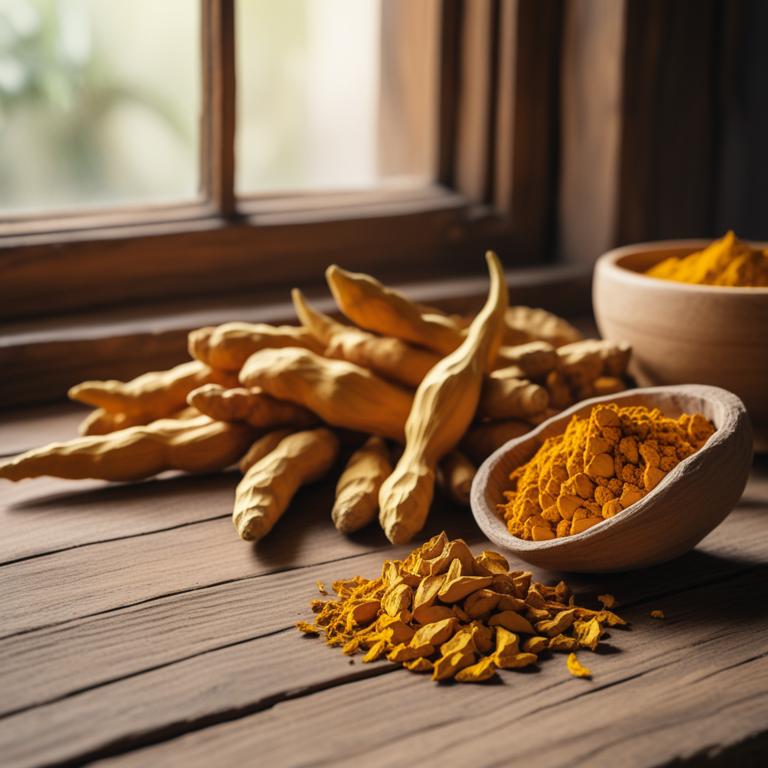
Herbs can be a great help when it comes to managing tendinitis.
Tendinitis is inflammation in the tendons, which are the tissues that connect muscles to bones. It can be painful and limit your movement. Curcuma longa, also known as turmeric, contains a compound called curcumin, which has strong anti-inflammatory properties. This means it can help reduce swelling and pain in the affected area. Zingiber officinale, or ginger, also has anti-inflammatory properties and can help reduce pain and stiffness.
It also has a warming effect, which can help increase blood flow to the area and promote healing. Glycyrrhiza glabra, or licorice root, has anti-inflammatory properties and can help reduce pain and swelling. It also has a soothing effect on the digestive system, which can be helpful if you're experiencing stomach issues due to your tendinitis. Capsicum annuum, or cayenne pepper, contains a compound called capsaicin, which can help reduce pain by blocking the production of a chemical called substance P, which transmits pain signals to the brain. Rosmarinus officinalis, or rosemary, has anti-inflammatory properties and can help reduce pain and swelling. It also has a stimulating effect on the mind and can help improve memory and concentration.
When used together, these herbs can provide relief from the pain and inflammation associated with tendinitis.
What are the most popular herbal remedies for tendinitis?
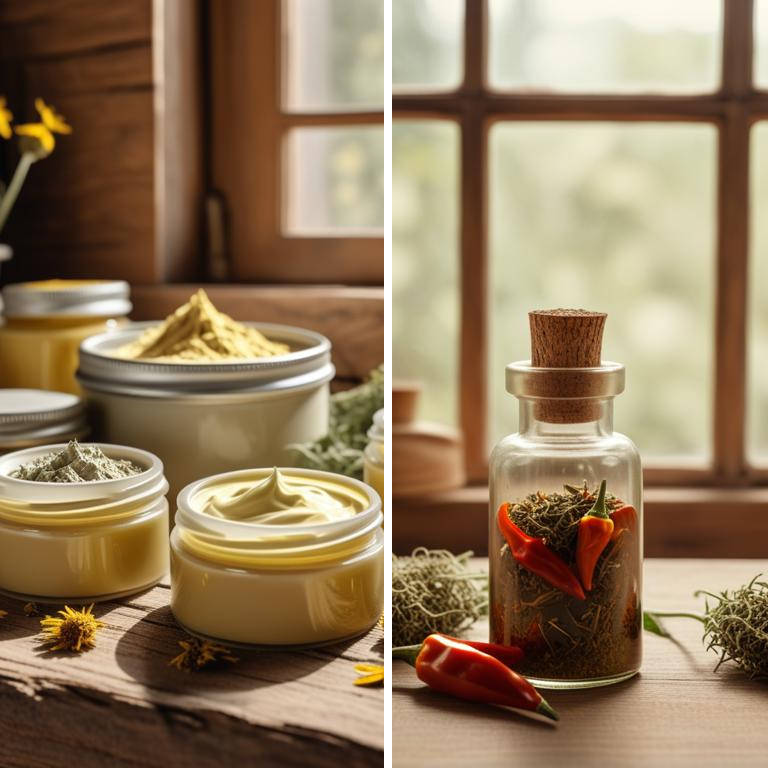
Herbal preparations can be very effective in treating tendinitis, a condition characterized by inflammation and pain in the tendons.
Decoctions, for example, are liquid extracts made by simmering herbs in water for a long time. They are good for tendinitis because they can penetrate deep into the tissue, reducing inflammation and pain. Decoctions can be made with herbs like turmeric, which contains a powerful anti-inflammatory compound called curcumin. Herbal creams are another popular preparation for tendinitis. They work by applying the active compounds of the herbs directly to the affected area, where they can be absorbed quickly and provide relief from pain and inflammation. Creams made with arnica, for instance, have been shown to reduce pain and swelling in the tendons. Tinctures are liquid extracts made by soaking herbs in a solvent, such as alcohol or glycerin.
They are good for tendinitis because they are highly concentrated and can be easily absorbed into the body. Tinctures made with ginger, for example, have anti-inflammatory properties that can help reduce pain and swelling in the tendons. Salves are topical preparations made with herbs, oils, and waxes. They work by creating a protective barrier on the skin, preventing further irritation and promoting healing. Salves made with calendula, for instance, have anti-inflammatory and antimicrobial properties that can help soothe and calm the affected area. Finally, infusions are liquid extracts made by steeping herbs in hot water. They are good for tendinitis because they can be easily absorbed into the body, providing relief from pain and inflammation.
Infusions made with willow bark, for example, contain salicin, a compound that has anti-inflammatory and pain-relieving properties.
Additional Resources:
What herbs could potentially exacerbate tendinitis?
If you have tendinitis, it's best to be careful with certain herbs that might make things worse.
Ginkgo biloba, for example, can thin your blood and make it harder for wounds to heal, which can be a problem if you already have inflammation in your tendons. Taxus baccata, also known as yew, contains a toxic compound that can be particularly hazardous if you have bleeding problems - and tendinitis can already cause swelling and pain in your tendons.
Ephedra sinica, a plant often used in supplements, can raise your blood pressure and heart rate, which might not be good for someone with tendinitis, as their joints may already be inflamed. Rauvolfia serpentina, or snake root, has a compound that can make it harder for your body to absorb calcium, and tendons need calcium to stay strong.
And Angelica sinensis, a plant often used in traditional medicine, can make your blood thinner and increase your risk of bleeding - which is not what you want if you already have tendinitis.
FAQ
Are there any specific herbs that can prevent tendinitis?
Ginger and turmeric are herbs that have anti-inflammatory properties, which can help prevent tendinitis.
They contain compounds that reduce swelling and pain in the affected area.
Some studies suggest that consuming ginger and turmeric regularly may help alleviate symptoms of tendinitis and promote healing in the affected joints and muscles.
Is it safe to use herbal remedies for tendinitis during pregnancy?
When it comes to using herbal remedies for tendinitis during pregnancy, be cautious.
Some herbs may have effects on the baby or mother's body that aren't fully understood.
Ginger and turmeric are often used for pain relief, but it's essential to know the exact amounts and how they might interact with other things you're taking.
Are there any herbs that can reduce the frequency of tendinitis?
Turmeric is sometimes used to help with inflammation, a common cause of tendinitis.
Ginger also has anti-inflammatory properties that may reduce pain and discomfort associated with the condition.
These herbs can be consumed as tea, added to food, or taken as supplements, but more research is needed to confirm their effectiveness in reducing tendinitis frequency.
Can i combine different herbal remedies for tendinitis?
You can combine different herbal remedies for tendinitis, but be cautious of potential interactions.
For example, mixing willow bark (rich in salicylic acid) with ginger (known for its anti-inflammatory properties) might enhance pain relief.
However, combining multiple herbs can also increase the risk of side effects, so monitor your body's response carefully.
Related Articles
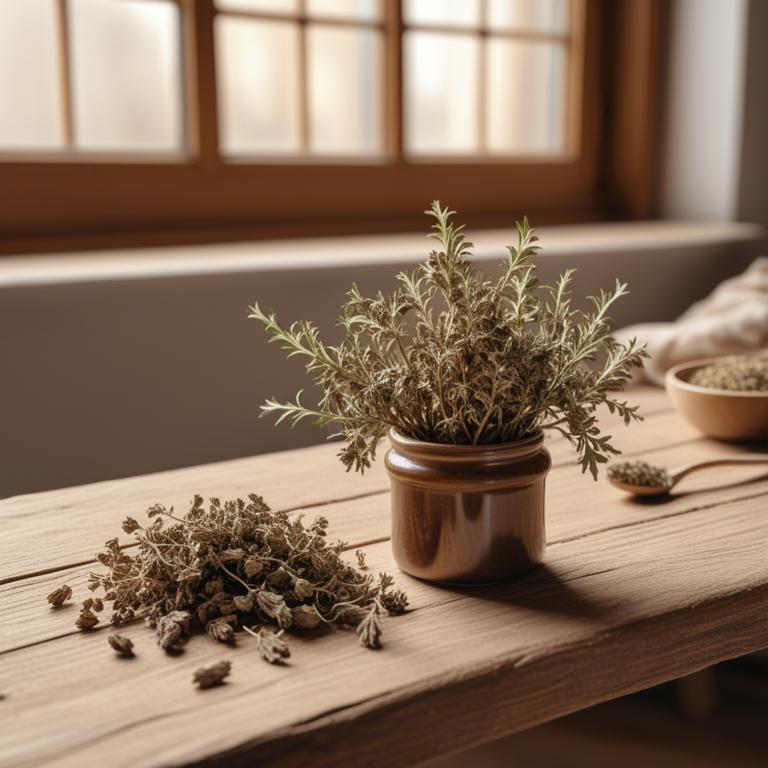
Bone Health: A Comprehensive Guide to Causes and Herbal Preparations

Causes of Joint Pain and Natural Relief through Medicinal Herbs and Preparations
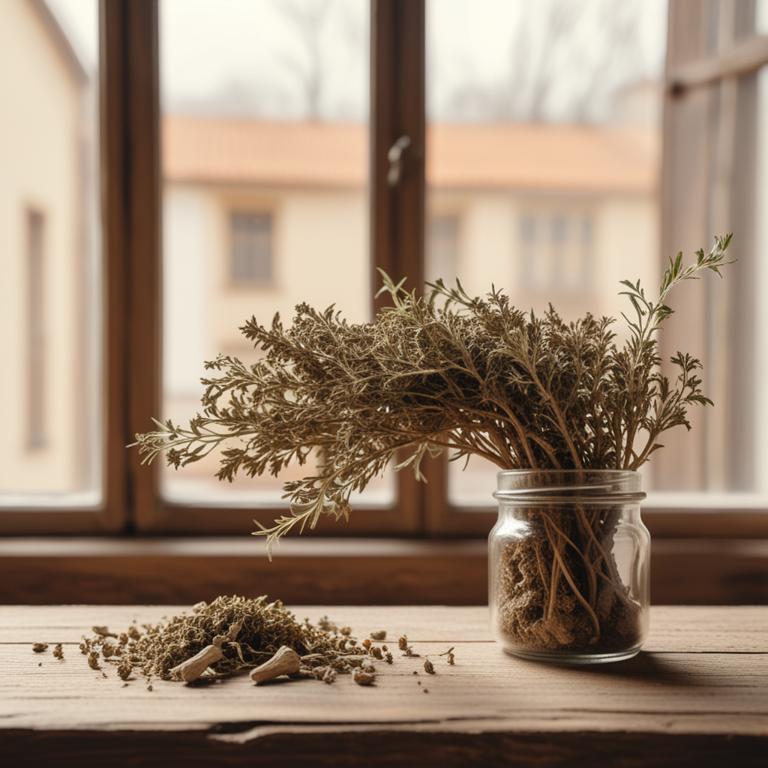
Natural Remedies for Leg Pain: Causes and Herbal Preparations
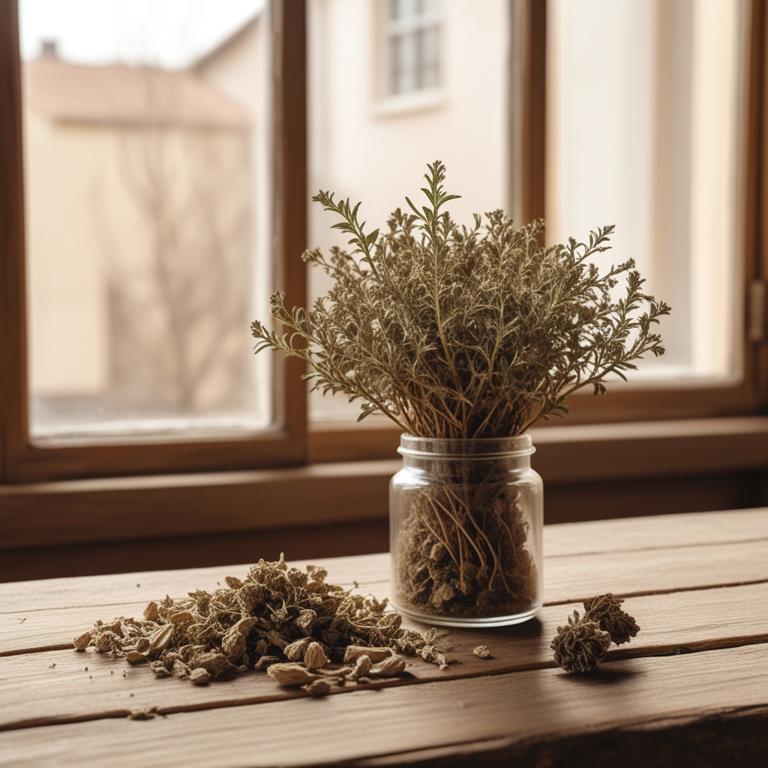
Relieving Muscle Pain: Understanding Its Causes and Herbal Remedies

Understanding Bunion Causes and Using Medicinal Herbs for Relief
